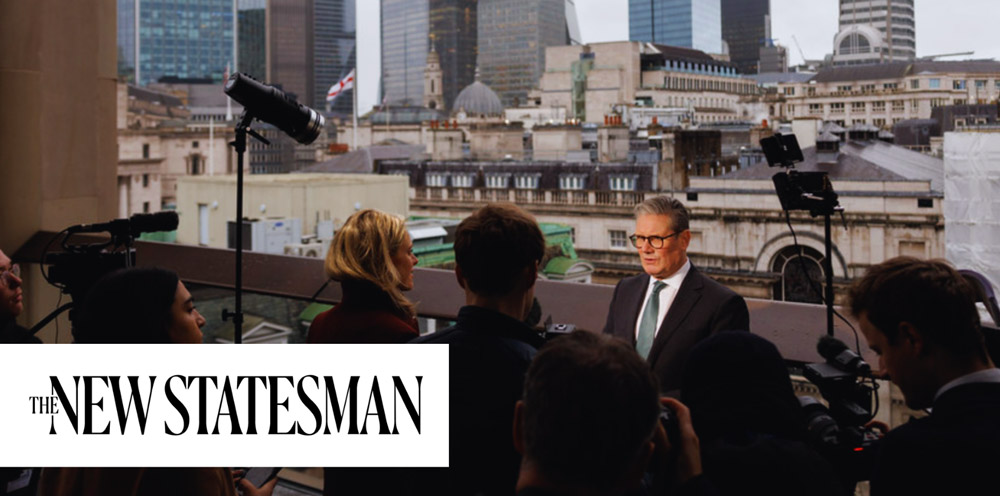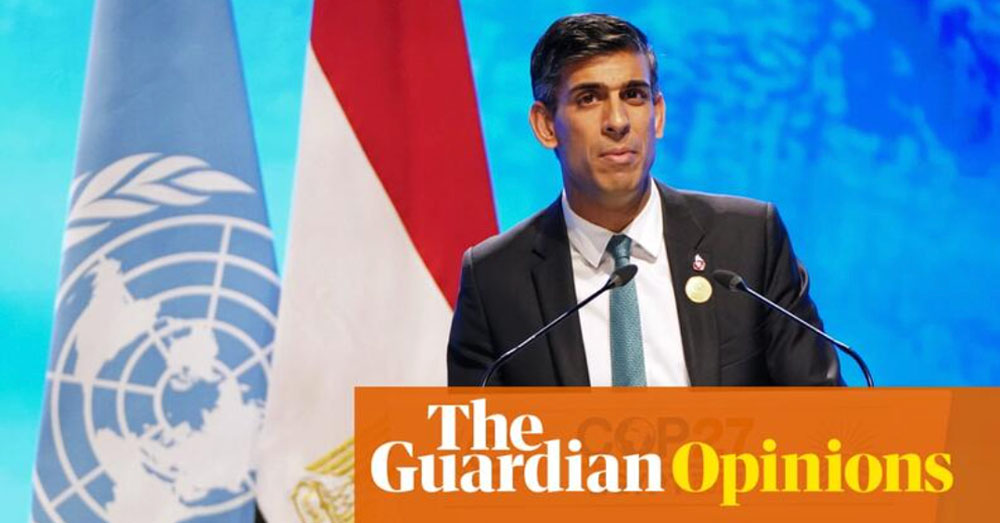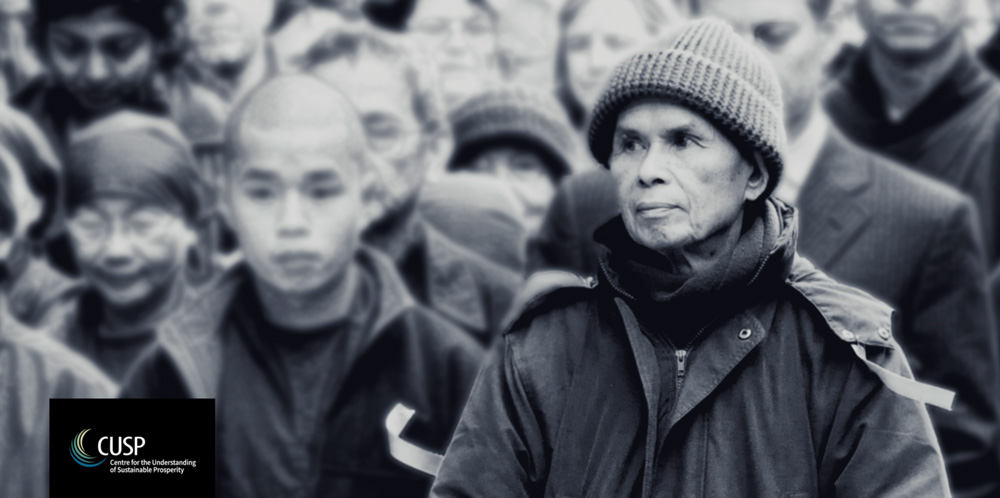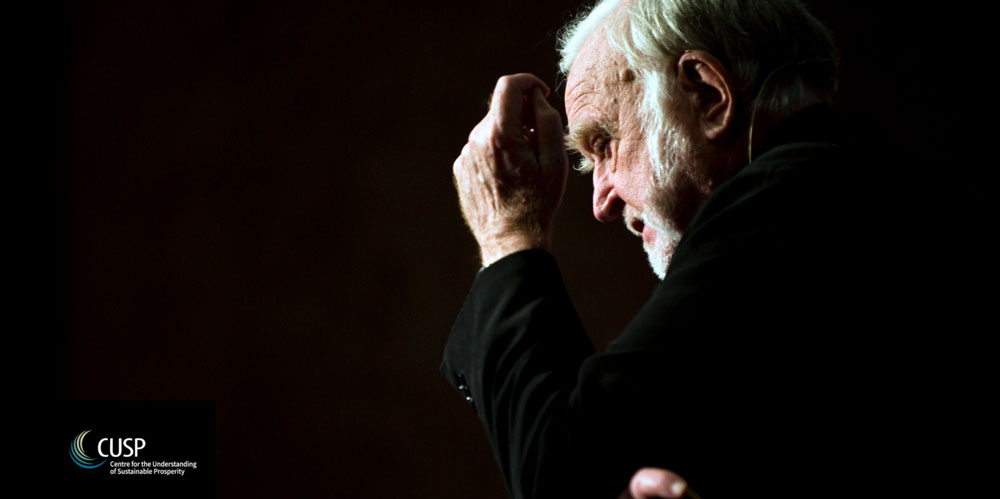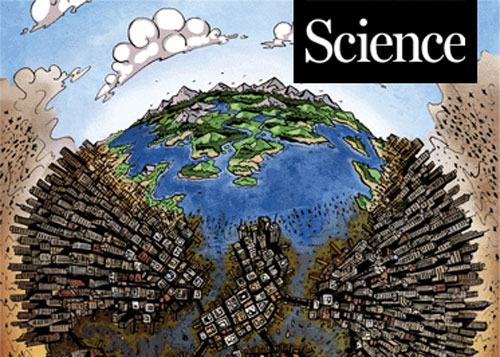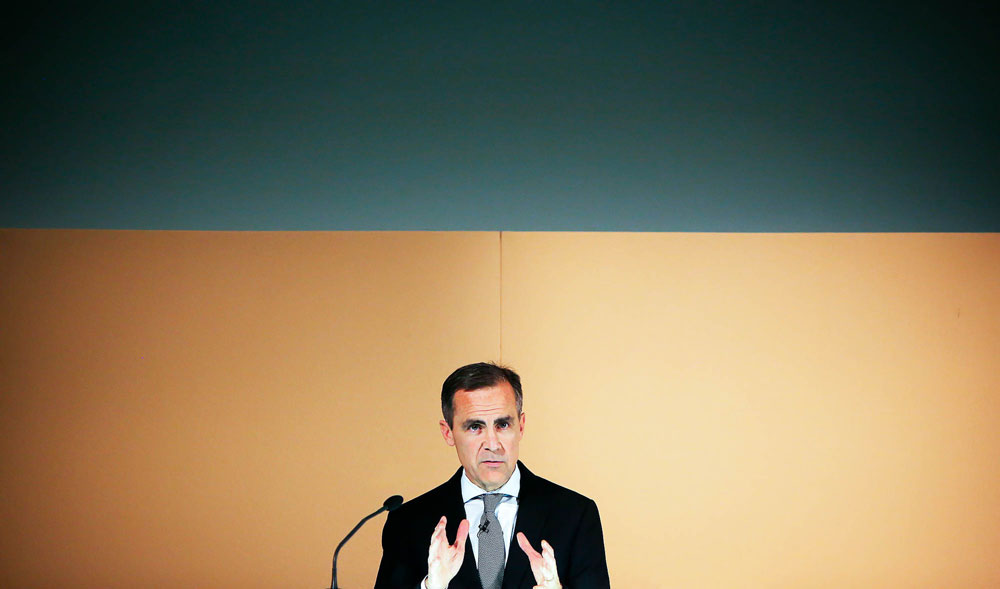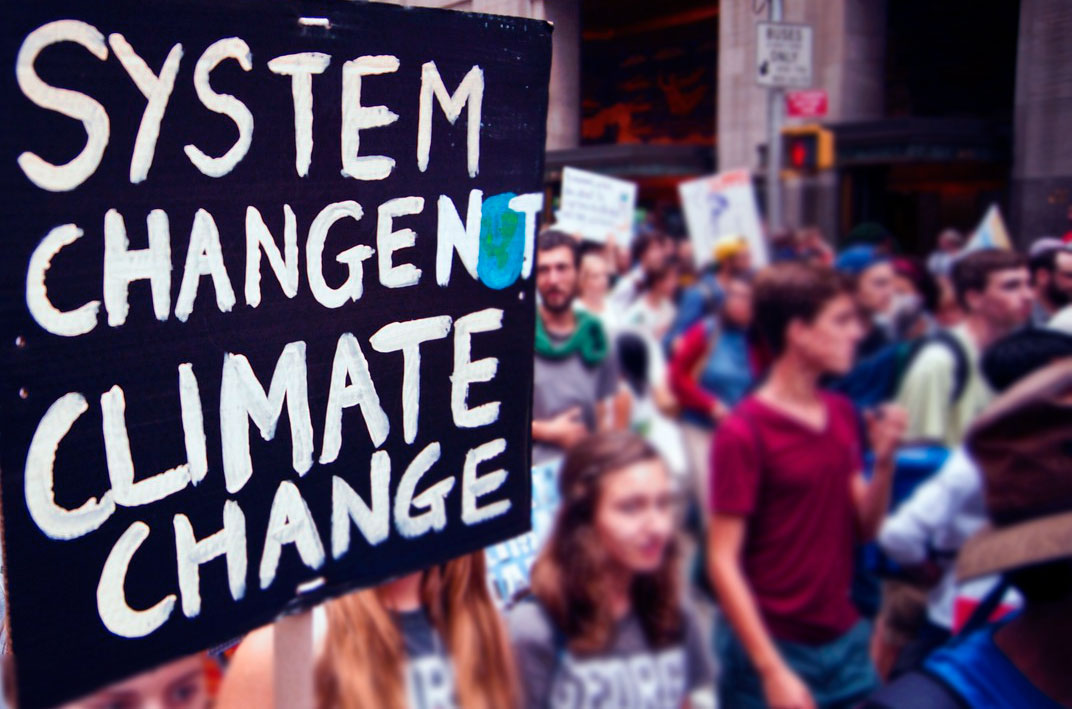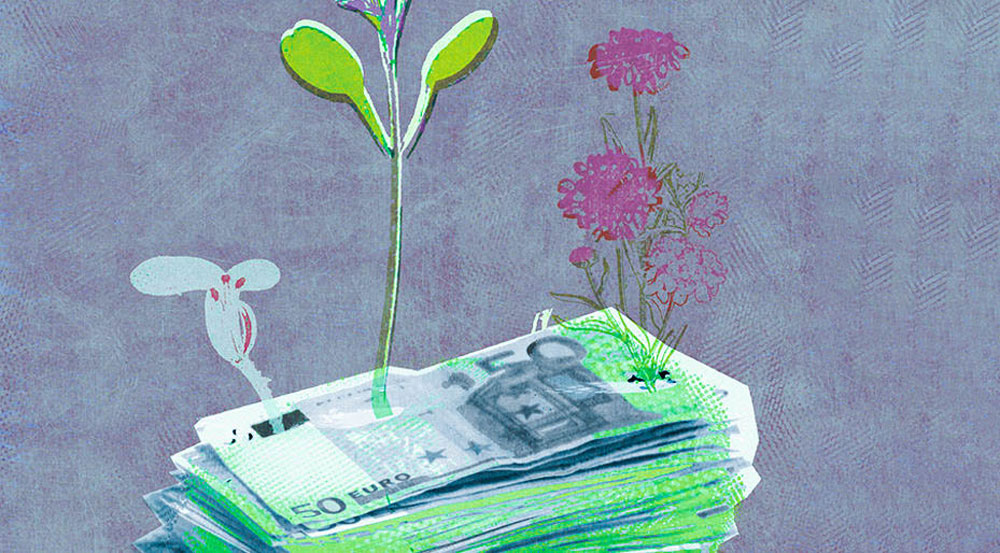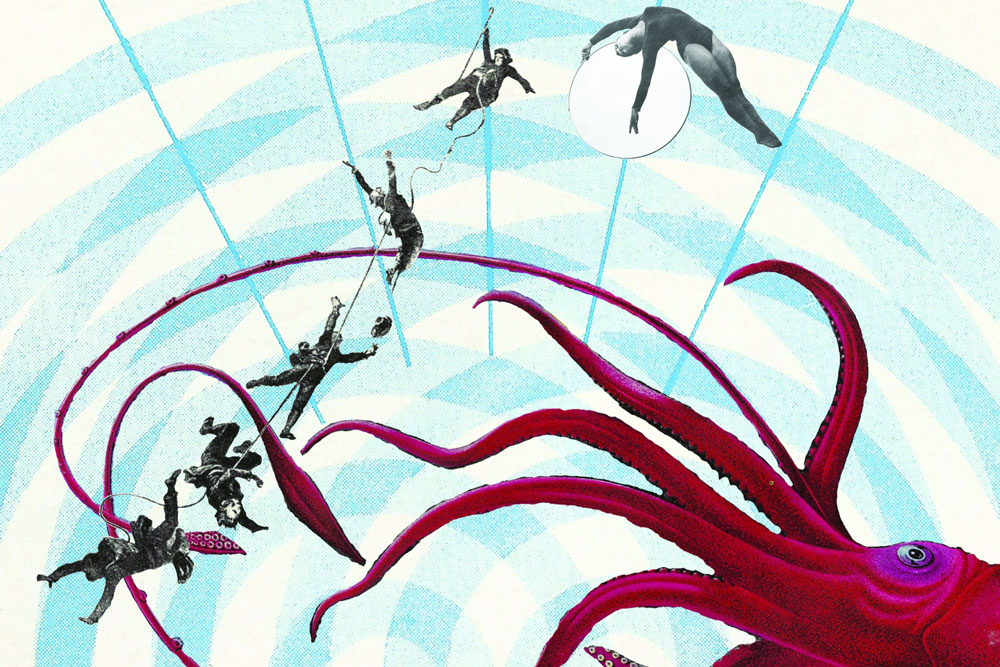blog 55 results
-
Calling for growth is not the same as delivering it | The New Statesman
No political mantra, no tech-bro fantasy, no alluring macroeconomic ideology has stemmed the persistent decline of economic growth. Let alone reversed it. To all intents and purposes, Tim Jackson writes, we are already living in a postgrowth world.Rishi Sunak’s ‘homage to catatonia’ | Blog
Rishi Sunak has rolled back the UK's net zero policies and ripped up decades of cross-party consensus on climate change, Tim Jackson writes. "Perhaps consensus is a commodity yet more fragile than consciousness. But its disappearance carries a tragic sense of political and social loss."From Davos to Reykjavík: decoupling wellbeing from growth | Keynote at Icelandic Wellbeing Economy Forum, 12 June 2023
In June this year, Iceland’s Prime Minister Katrin Jakobsdóttir hosted the first Wellbeing Economy Forum in Reykjavík. Tim Jackson’s keynote there explored the relationship between the ‘wellbeing economy’ and the ‘growth economy’ teasing out where the logic of wellbeing differs from the logic of growth.Imagining a postgrowth world | Speech at the EU Beyond Growth Conference, 17 May 2023
Growth is unsustainable. But the world beyond growth is frightening. We have built an economy that is dependent on growth. We must learn anew how society works, when the economy is not growing. And we need to confront the impossibility theorems presented to us by those who resist change.The invisible heart: postgrowth economy as care | EU Beyond Growth Conference, 15 May 2023
Care is an anathema to capitalism. Its virtues are capitalism’s vices. Its employment-rich foundation for wellbeing is capitalism’s ‘productivity crisis’. Yet, without care we are nothing, our progress is nothing. Without care there is no economy.Echoes of immortality: Art and the Wellbeing Economy
Sustainability is the art of living well within the ecological limits of a finite planet. Art is more than an instrument in this project. It’s the very nature of it.A talk delivered by Tim Jackson for the Wellbeing Economy Alliance Ireland Hub, March 2023.Without health there is no wealth. Why do so few governments understand this?—The Guardian Opinion
Politicians are wrong to believe that we can only afford decent care in good economic times, Tim Jackson writes. Without health there is no wealth. Without care there is no health. Care is investment. It’s not a luxury consumer item.Sunak’s growth fetish is a problem: he’s heading for the same budget trap as Truss | The Guardian Opinion piece
The siren call of climate-burning expansion bewitches British politics. More of the same will emerge in the autumn statement, Tim Jackson writes. To all intents and purposes, we’re already living in a post-growth world. And it’s time to take that challenge seriously.Moving beyond GDP is key to tackling a world in crisis | By Paul Allin, Diane Coyle and Tim Jackson
Gross domestic product remains the predominant measure of progress across the world, it's time to change that, write Paul Allin, Diane Coyle and Tim Jackson. Amid the global threats posed by climate change, spiralling energy costs, insecure employment and widening inequality, the need to rethink our notion of progress is now an urgent priority.Why UK’s ‘treasured free-market economy’ will not achieve net zero
Whatever the UK government says it’s doing—and not doing—one thing is clear, Tim Jackson writes, the “treasured free-market economy” is never going to compensate for our failure to insulate people’s homes against the cold, and the future against the ravages of climate change.The Art Of Power
CUSP Director Tim Jackson reflects on the life of and work of the late Thich Nhat Hanh and its relevance for contemporary debates about the meaning of prosperity and power. (This blog first appeared on the CUSP website.) The Vietnamese Buddhist monk, writer and peace activist Thich Nhat ...Mihaly Csikszentmihalyi—A visionary for our time | By Amy Isham and Tim Jackson
Professor Mihaly ‘Mike’ Csikszentmihalyi was one of the founders of the positive psychology movement and father of the concept of ‘flow’. His death last month at the age of 87 marks the passing of a rare and visionary scientist. In this blog, Amy Isham and Tim Jackson reflect upon his life and legacy.Why health should replace wealth as the heart of prosperity | Blog by Tim Jackson and Julian Sheather
The economic system to which we are in thrall throws us out of balance, Tim Jackson and Julian Sheather write in this blog. By failing to meet our most essential needs it is doomed to immiserate and, ultimately, sicken us. We urgently need to regain a richer, more satisfying understanding of ourselves, and our place in the world. (This article first appeared on the BMJ website.)Earth vs Growth | Economic Observatory Blog by Tim Jackson
Carbon efficiency is improving, but far too slowly to offset climate change. We need to get beyond our relentless pursuit of growth, writes Tim Jackson for the Economics Obersavatory ahead of COP26. Only a few economists – and even fewer politicians – have challenged the primacy of economic growth. But being frightened to scare the horses is no way to win the race against climate change.Billionaire space race: the ultimate symbol of capitalism’s flawed obsession with growth
Now is not the time to abandon spaceship Earth, Tim Jackson writes in his essay for The Conversation UK Insights Series. Let’s dream of some “final frontier” by all means. But let’s focus our minds too on some quintessentially earthly priorities.A Canopy of Hope
Wangari Maathai’s is just one of the many stories that have brought inspiration to Tim (and to countless others, of course) in the last decades. So it was to her and to others that he turned, when he sat down to write Post Growth – life after capitalism, which has just been published by Polity.Inside Impact Investing | Triodos Podcast
Impact investing is a driving force in the transition to a more inclusive and sustainable world. In this podcast series, Tim Jackson and Hans Stegeman discuss the shortcomings of our current economic system and explore how the financial sector can play a crucial role in providing the capital needed to realise real and profound change.Modelling Transition Risk | Blog
Tim Jackson summarises the recent TRansit project which has pioneered a novel agent-based, stock-flow consistent macro-economic model. Tim discusses the findings from the project and sets them in the context of the Bank of England’s work on ‘transition risk’.The Nature of Prosperity and the Prosperity of Nature
How can nature writing contribute to the common good, we wanted to know? Could writing about nature ‘help generate a collective and popular politics of conservation and connection’—Foreword to the new CUSP online collection of essays on nature, ecological challenges and connections between people and place: “Nature Writing for the Common Good”.Recovery or Renewal? Time for an economic rethink | Blog with Craig D Rye
A recent study of long-term fluctuations in economic growth published in Nature Scientific Reports suggests both danger and opportunity in the emerging debate about post Covid-19 economic recovery. In this blog, Craig D. Rye and Tim Jackson outline the findings.The Altruist Within: In pursuit of sustainability and justice in a broken financial system
This blog is an edited version of a keynote Tim Jackson gave at the 2013 Sea of Faith Annual Conference in Leicester. In outlining the philosophical foundation of a different approach to economics, this essay speaks as much to the financial crisis from 2008, as it does to the current health and economic predicament from COVID-19.Let’s be less productive—Restoring the value of care | Opinion piece for The New York Times
The challenges facing the world and the UK today are unprecedented. A global health emergency, a global climate crisis, and a catastrophic loss of biodiversity are undermining the basis for future prosperity in the UK and across the world. This article, written for The New York Times in 2012, speaks to the theme of restoring the value of decent work to its rightful place at the heart of society.Unravelling the claims for (and against) green growth | Science Article by Tim Jackson and Peter Victor
It is clear that the larger the economy becomes, the more difficult it is to decouple that growth from its material impacts... This isn't to suggest that decoupling itself is either unnecessary or impossible. On the contrary, decoupling well-being from material throughput is vital if societies are to deliver a more sustainable prosperity—for people and for the planet. (This article is posted on the Science website).The storied state of economics: Review of Robert Shiller’s Narrative Economics | By Tim Jackson
“Economists are tellers of stories and makers of poems,” wrote the economic historian Deidre McCloskey in 1990. It’s a curious observation for a profession that prides itself on hard-nosed, quantitative analysis and strives continually for predictive power. The Nobel-prizewinning economist Robert Shiller goes even further. His new book probes how social behaviour trumps statistics in determining the fate of economies—Tim Jackson weighs it up.Engagement in a new climate | Editorial for the Environmental Scientist
Environmental engagement is on television screens, in the streets and at your local book group; everyone's doing it. Whether you're engrossed in the latest nature documentary or watching the news in the evening, environmental communicators are everywhere and everyone.—This edition of Environmental Scientist focuses on the new radicalism in environmental engagement; with an Editorial by Tim Jackson.2050 is too late—we must drastically cut emissions much sooner
At current rates of reduction, the UK fair carbon budget will be spent in just four years' time, Tim Jackson writes in his blog for The Conversation. "Every year that progress is delayed, the challenge only gets bigger", he argues, we don't only need a credible strategy on zero carbon targets, but also emission pathways, with a defined level of negative emission technologies.A shift in temperature—the financial challenge of a zero carbon economy | Blog by Tim Jackson and Andrew Jackson
Climate emergency demands a wholescale shift away from fossil fuels. Tim Jackson and Andrew Jackson reflect here on the emerging concept of 'transition risk', a key element in the Bank of England's response to climate change, and outline the challenges inherent in understanding and modelling it.‘Whatever it takes’—the new economics of system change
‘System change, not climate change’ is the mantra for a new politically-charged ecological activism. In the wake of two key economic conferences, Tim Jackson reflects on what this means for the financial and political stability of Europe.—"It matters not a jot that you do ‘whatever it takes’ to save the banks, if you fail to do whatever it takes to save the climate."Green, prosperous and fair: a vision for Europe’s future
After the most profound shake-up in decades, European politics stands at a pivotal point in its long history. With nationalist parties drawing support from communities who have been left behind and green parties benefiting from a huge upsurge of concern around climate breakdown and biodiversity loss, there is a unique opportunity, argues Tim Jackson, to build a new vision for Europe that is green, prosperous and fair.Managing a Post-Growth Economy: Circularity, Productivity and Inequality
“The circular economy is a very good idea, but it is a better idea when it is placed in the context of delivering prosperity, rather than aimed at increasing growth.” A conversation between Emanuele Di Francesco and Tim Jackson, discussing post-growth concepts of a circular economy, the limits of labour productivity and the dynamics of inequality.Beyond the choke hold of growth: post-growth or radical degrowth?—Tim Jackson in conversation with Giorgos Kallis
The 2018 Post-Growth conference at the European Parliament marked a milestone in the history of the post-growth debate. In this interview, Riccardo Mastini discusses the possibilities and challenges for imagining a world beyond growth with two key post-growth thinkers—Tim Jackson and Giorgos Kallis. (The interview was conducted for the Green European Journal, and was originally published in two parts.)How the light gets in—The science behind growth scepticism
The Entropy Law still matters. CUSP director Tim Jackson responds to Michael Liebreich’s essay on the ‘The secret of eternal growth’.—"Because we are intelligent does not mean that there is no such thing as limits. We cannot usefully ‘imagine’ the available carbon budget to be bigger than it actually is. Our ‘wonder’ will not in itself preserve the species lost precipitously in recent decades in the relentless pursuit of eternal growth."Paradise Lost?—The iron cage of consumerism
Our systematic failure to address existential anxiety robs society of meaning and blinds us to the suffering of others; to persistent poverty; to the extinction of species; to the health of global ecosystems. With his think piece Angst essen Seele auf — Escaping the ‘iron cage’ of consumerism, Tim Jackson adds to an eclectic set of essays, published in honour of Wolfgang Sachs.‘Secular stagnation’ meets the ‘GDP fetish’
Tim Jackson introduces his new CUSP working paper ‘The Post-Growth Challenge’, in which he discusses the state of advanced economies ten years after the crisis. Our attempts to prop up an ailing capitalism have increased inequality, hindered ecological innovation and undermined stability, he argues.Confronting inequality: basic income and the right to work
Ten years after the financial crisis, inequality in advanced economies is still rising. Tim Jackson presents the findings of a new CUSP working paper to explore potential solutions. "There are post-growth worlds in which social progress remains entirely possible."‘Everything, in short, except that which makes life worthwhile’
Fifty years to the day after Robert Kennedy’s historic speech on the limitations of the GDP at the University of Kansas in March 1968, Tim Jackson reflects on the failings of measurement and vision which still haunt both economic policy and our everyday life.Social Limits to Growth — Lessons for a post-crash economy
On 13 November 2017, the APPG on Limits to Growth hosted an evening debate at the House of Commons, to celebrate the 40th anniversary of the publication of Social Limits to Growth by Fred Hirsch. Caroline Lucas and Tim Jackson reflect on the continuing relevance of his ground-breaking work.This new world—Reframing the distribution of rewards | Huffington Post
Remember trickle-down theory? It’s the rose-tinted notion that economic growth is the only way to bring poor people out of poverty and reduce the inequality that divides society and undermines political solidarity. It’s not working. Our choices are now clear. Either we endure the rising instability and fractured politics of a deeply unequal world, or we build a new vision of a shared prosperity.Broken promises—the engine of consumerism
Does consumerism thrive on our discontentment? Tim Jackson argues yes, the success of consumer society lies not in meeting our needs but in its spectacular ability to repeatedly disappoint us. This may seem dark, but from here we can understand why consumerism must eventually fall – and how to replace it.The future of jobs: is decent work for all a pipe dream? | The Guardian
Rapid developments in technology and unpredictable economies are destabilising employment as we know it. What are the possible solutions? Rapid developments in technology and unpredictable economies are destabilising employment as we know it. What are the possible solutions? It’s not the demand for human labour that is disappearing, Tim Jackson argues, but the institutions and economics to deliver it.

